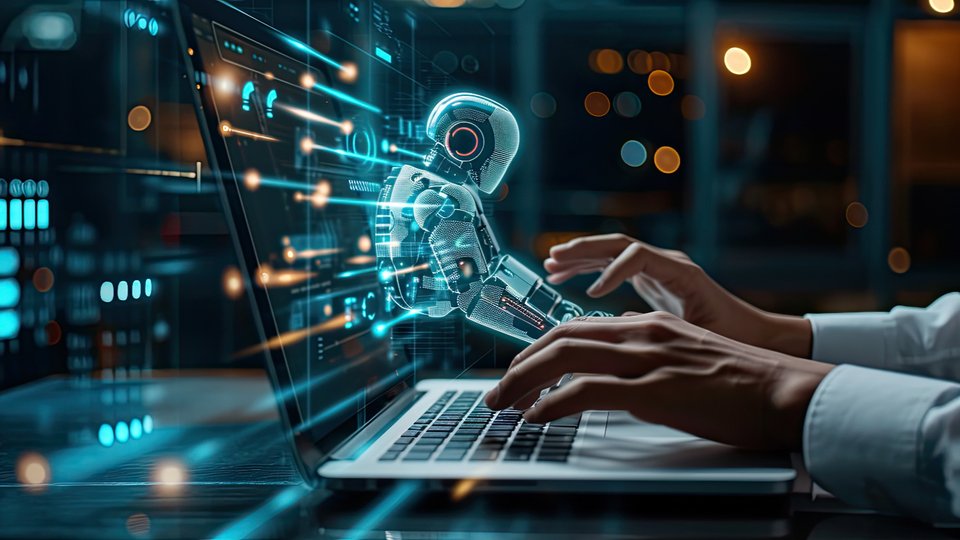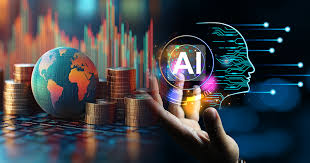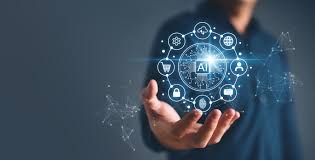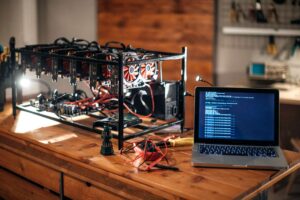The Future of Work: Human-AI Collaboration in the Age of Intelligent Agents – A Deeper Dive
Artificial Intelligence (AI) is not merely a tool; it is becoming a proactive partner in the workplace. The rise of AI agents signals a profound shift, moving beyond automation to true collaboration. These intelligent systems perceive, reason, and act autonomously, learning and adapting to achieve complex goals. The future of work AI hinges on cultivating effective human-AI partnerships, unlocking unprecedented levels of productivity and reshaping the very nature of employment.
The Evolving Nature of AI Agents
AI agents represent a significant leap from earlier AI applications. They are dynamic entities, not static programs.
From Automation to Autonomy
Initially, AI focused on automating repetitive, rule-based tasks. Think of early chatbots or simple data entry systems. Modern AI agents, however, leverage advanced Large Language Models (LLMs) and sophisticated algorithms. This allows them to:
- Understand Context: They grasp nuances in human requests and environmental conditions.
- Plan and Execute: They break down complex objectives into actionable steps and carry them out.
- Learn and Adapt: They continuously improve performance based on feedback, new data, and past interactions.
- Proactive Engagement: Unlike reactive tools, AI agents can initiate actions or suggest solutions without explicit prompts, anticipating needs.
This proactive, adaptive capability fundamentally changes their role from assistants to collaborators.
Models of Human-AI Collaboration
The integration of AI agents is fostering diverse collaboration models, each redefining human roles.
AI as an Augmentor
In this model, AI agents enhance human capabilities. They handle data analysis, information retrieval, and preliminary drafting. For example, a marketing professional uses an AI agent to research market trends and generate initial campaign ideas. The human then refines these outputs, leveraging their creativity and strategic judgment. This frees up time for higher-level thinking and complex problem-solving.
AI as a Co-Worker
Here, AI agents work alongside humans on shared tasks. They might manage project timelines, coordinate communication across teams, or handle initial customer inquiries. A software development team might employ an AI agent to write boilerplate code or conduct initial debugging, allowing human developers to focus on architectural design and complex logic. This seamless integration requires clear communication protocols between human and AI counterparts.
AI as an Orchestrator
In more advanced scenarios, AI agents can manage and coordinate other AI systems or even human teams. For instance, an AI agent in a logistics company might optimize an entire supply chain, directing autonomous vehicles and managing warehouse robotics, while human oversight ensures ethical compliance and handles unforeseen disruptions. This model emphasizes the human role in strategic direction and ethical governance.
New Skillsets for the AI-Augmented Workforce
The shift towards human-AI collaboration necessitates a new set of skills for the workforce.
Essential Human Capabilities
- AI Literacy: Understanding AI’s capabilities, limitations, and ethical implications becomes crucial. Workers must know when and how to effectively deploy AI agents.
- Prompt Engineering & AI Communication: Effectively communicating with AI agents, crafting precise prompts, and interpreting their outputs are vital. This ensures AI performs tasks accurately and efficiently.
- Critical Thinking & Evaluation: Humans must critically assess AI-generated content and decisions. They identify biases, inaccuracies, or logical flaws.
- Ethical Reasoning: As AI agents gain autonomy, humans must guide their ethical behavior. They ensure AI aligns with organizational values and societal norms.
- Adaptability & Continuous Learning: The rapid evolution of AI demands a mindset of lifelong learning. Workers must continuously update their skills to remain relevant.
- Interpersonal and Emotional Intelligence: Skills like empathy, negotiation, and complex problem-solving (especially those involving human dynamics) become even more valuable. AI augments logical tasks, elevating the importance of human-centric skills.
Transformative Impact Across Sectors
AI agents are not confined to a single industry; their impact spans diverse sectors.
- Healthcare: AI agents assist in diagnostics, personalize treatment plans, and automate administrative tasks, freeing medical professionals to focus on patient care.
- Finance: They detect fraud, analyze market trends for investment strategies, and automate compliance checks, enhancing efficiency and security.
- Creative Industries: AI agents generate initial content (text, images, music), analyze audience preferences, and automate repetitive editing, allowing artists and designers to focus on conceptualization and refinement.
- Manufacturing: Virtual and embodied AI agents optimize production lines, predict equipment failures, and manage inventory, leading to near-autonomous factories.
Strategic Implementation for Businesses
Businesses must adopt a thoughtful approach to integrate AI agents successfully.
Key Strategies
- Pilot Programs: Start with small, controlled deployments to test AI agent effectiveness and gather feedback.
- Employee Training: Invest heavily in upskilling programs. These prepare employees for new roles and foster a culture of human-AI collaboration.
- Clear Governance: Establish clear guidelines for AI agent use, data privacy, and ethical decision-making.
- Iterative Development: AI agent capabilities will continuously improve. Businesses must embrace an agile approach to integration and refinement.
- Focus on Value Creation: Identify areas where AI agents can genuinely augment human potential and drive strategic value, rather than simply cutting costs.
Navigating the Ethical and Societal Landscape
The widespread adoption of AI agents raises critical ethical and societal questions that require proactive solutions.
Addressing Core Concerns
- Job Transition: Governments and organizations must collaborate on policies and programs to support workers whose roles are significantly impacted by AI. This includes reskilling initiatives and exploring new economic models.
- Algorithmic Bias: Rigorous testing and diverse training data are essential to mitigate biases. Continuous monitoring and human oversight remain crucial to ensure fairness.
- Accountability Frameworks: Developing clear legal and ethical frameworks for accountability when autonomous AI agents make critical decisions is paramount.
- Data Privacy and Security: Robust measures are necessary to protect sensitive data handled by AI agents. This prevents misuse and cyber threats.
The Collaborative Future
The future of work AI is not a distant concept; it is unfolding now. AI agents will become increasingly sophisticated, handling more complex tasks and interacting more seamlessly with humans. This evolving partnership promises a future where human ingenuity is amplified by intelligent automation. By embracing human-AI collaboration responsibly, we can build a more productive, innovative, and ultimately, a more human-centric future of work.














Post Comment